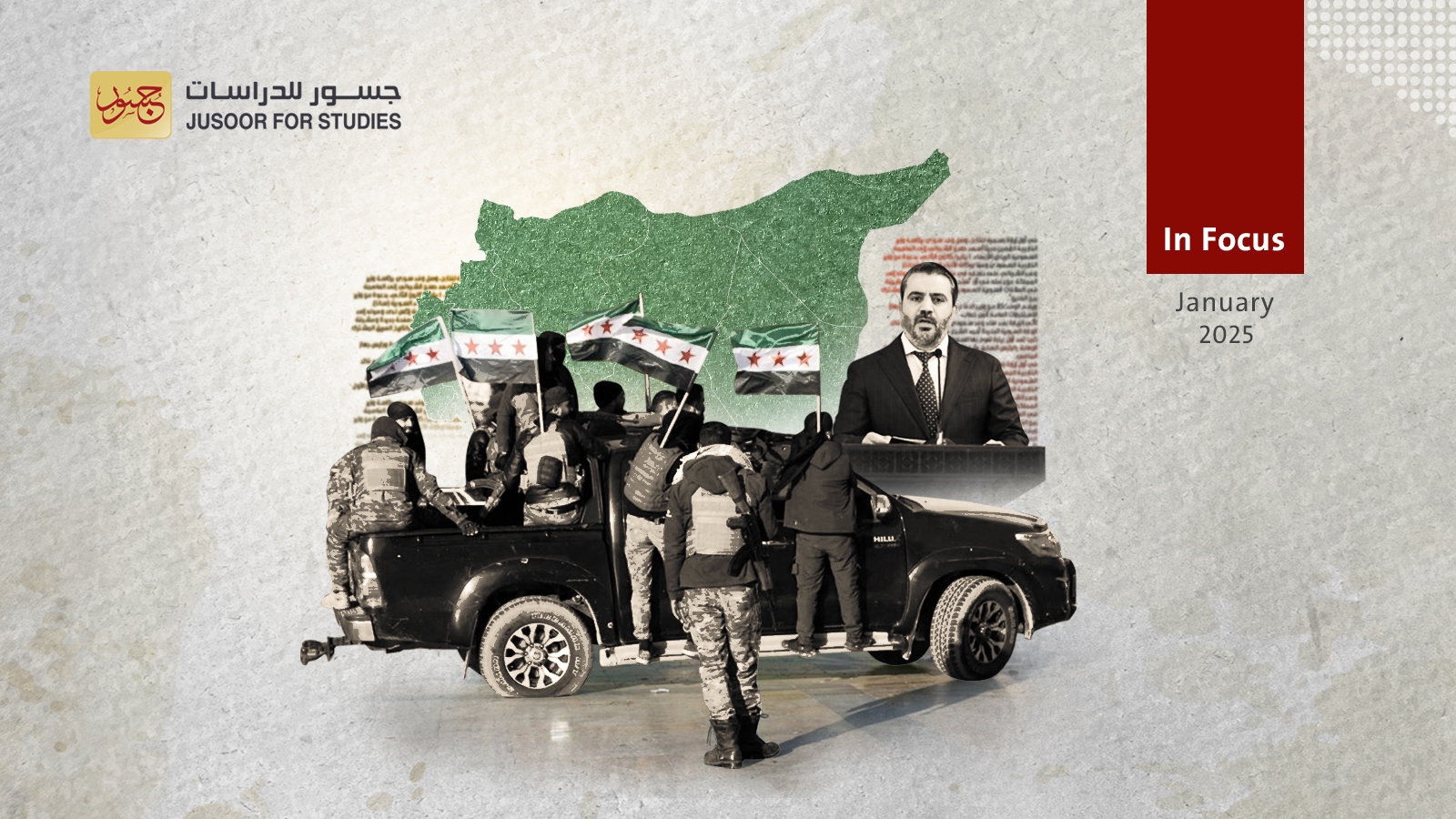Syria’s New Rulers Sets Their Priorities
In the month since the fall of the Assad regime, Syria’s new administration has made clear its priorities for the transitional phase, largely relating to stability, administration, legitimacy and sovereignty. While it has already begun to tackle these priorities, it is working with severely restricted capabilities in the face of towering demands and challenges. As de facto ruler Ahmad al-Sharaa said on December 4, his administration was only prepared to lead a transitional phase in Aleppo.
Accordingly, the administration has focused its resources on the following priorities.
1. Establishing Security
The new administration has dissolved the fallen regime’s security services and pursued their leaders. In their place, it is relying on the security apparatus of the “Salvation Government”—the formerly Idlib-based administration dominated by Hayat Tahrir al-Sham, which now controls Damascus—to establish security. However, that apparatus will need to expand massively if it is to impose stability across Syria. Any delay in this process will leave space for unrest and organized crime, which could be exploited by spoilers, particularly the Islamic State group and remnants of the former regime.
The new administration is also keen to provide security in order to bring about a political transition and create a stable environment that will encourage the return of refugees and the inflow of investment, thus nurturing political relations with various regional and international actors.
2. Providing Services
The new administration has promised a significant improvement in the provision of services, especially electricity, water, sanitation and housing. This will require major resources, and it will take time for the effects to be felt, meaning that external support will be crucial. Qatar and Türkiye are working to rehabilitate Syria’s international airports, and the latter has also started a project to renovate the electricity network, first in Aleppo then across the country. Doha and Ankara have also each sent a floating power station to supply the Syrian coast with electricity, while Jordan has begun repairing electricity mains supplying the country’s south.
The new administration faces huge challenges in providing services, most notably the decrepit and war-torn infrastructure it inherited from the previous regime, a bloated and corrupt public sector, international sanctions and a general lack of resources. Sanctions waivers and external support could allow the new administration to make progress in this area.
Damascus places a high priority on providing public services, as doing so would indicate that it is rebuilding the state and its institutions, an essential condition for achieving domestic legitimacy. Providing a basic level of services will also help it to establish security, encouraging Syrian refugees to return, in harmony with regional and international efforts to stabilize the region.
3. Breaking Syria’s International Isolation
Regional and international powers established contacts with the new administration immediately after it took power in Damascus. The de facto government also took the initiative to open channels of communication with various governments to redraw the map of Syria’s international relations. That said, these relationships will take time to crystallize; much depends on the stabilization of Syria and the policies of the new Trump administration.
The new administration needs good international relationships in order to see sanctions lifted and to break Syria’s political isolation. External support can also help speed up the reconstruction process. The new administration is hoping that international support for regional stability will include support for the stability of Syria, contributing to partnerships to combat terrorism and to support a transition that can nurture development and prosperity.
4. Building an Army and a State Monopoly on Arms
The new administration has announced that it is working to dissolve Syria’s armed factions and install an institutionalized army under the Ministry of Defense and the General Staff—a professional armed force whose structure and combat doctrine differ from those of the previous regime. The Ministry of Defense has begun the process of integrating armed factions from its Military Operations Administration, to be followed by those of the Turkish-backed “Syrian National Army.” Eventually, it plans to integrate the remaining armed groups from across Syria.
The new administration is relying on domestic dialogue to reconstitute the Syrian military and monopolize arms in the hands of the state. In order to do so, it will need the support of regional and international allies. The transition from a mosaic of armed factions to an institutionalized army requires a stable supply of resources to the state, as well as careful planning. First and foremost, it requires security and political stability among the various parties, with a unified effort behind a single national project.
Conclusion
A wide range of urgent needs must be met if the new administration in Damascus is to achieve these goals. The administration faces many challenges, even threats, which it is trying to tackle while thinking carefully about the best way to approach them. However, there are also opportunities that could strengthen the new administration’s ability to overcome crises: most importantly, a greater regional and international interest than ever in regional stability—based on stability in Syria.








